C.S. Lewis's 'The Pilgrim's Regress' is a thought-provoking blend of philosophical and psychological exploration interwoven into a captivating narrative. This allegorical novel follows the protagonist John on his spiritual journey filled with encounters with various philosophical ideologies and inner turmoil. Lewis's prose is rich in detail and symbolism, echoing the works of medieval allegorical literature while also incorporating modern psychological insights. The novel invites readers to delve deep into themes of faith, reason, and the human search for meaning amidst a complex and changing world. Through John's experiences, Lewis challenges readers to reflect on their own beliefs and values, making this book a timeless and profound literary work. C.S. Lewis's background as a scholar of literature and philosophy greatly informs the depth and complexity of 'The Pilgrim's Regress'. His own spiritual journey and conversion to Christianity undoubtedly influenced the themes and messages conveyed in the novel. Lewis's unique ability to blend intellectual discourse with imaginative storytelling sets this work apart as a must-read for anyone interested in philosophy, psychology, or literature. With its engaging narrative and profound insights, 'The Pilgrim's Regress' is recommended for readers seeking a challenging and rewarding literary experience.
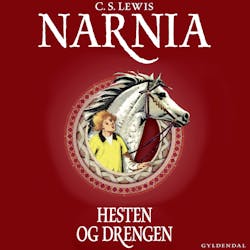
Narnia 3 - Hesten og drengen
C. S. Lewis
audiobookbook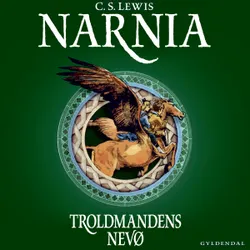
Narnia 1 - Troldmandens nevø
C. S. Lewis
audiobookbook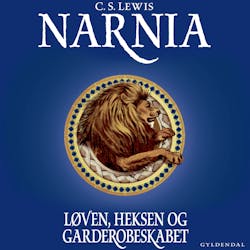
Narnia 2 - Løven, heksen og garderobeskabet
C. S. Lewis
audiobookbook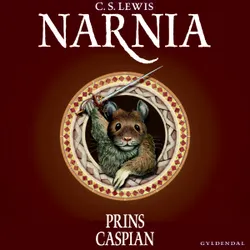
Narnia 4 - Prins Caspian
C. S. Lewis
audiobookbook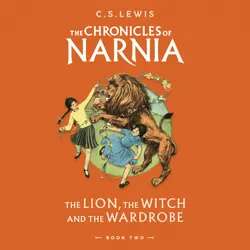
The Lion, the Witch and the Wardrobe
C. S. Lewis
audiobook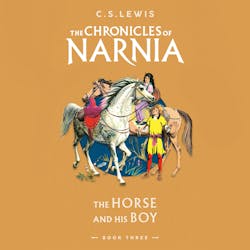
The Horse and His Boy
C. S. Lewis
audiobook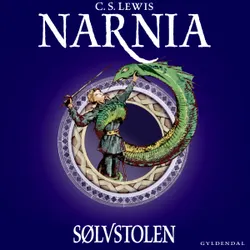
Narnia 6 - Sølvstolen
C. S. Lewis
audiobookbook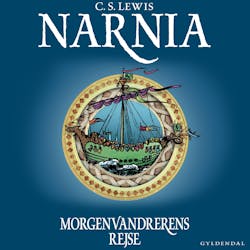
Narnia 5 - Morgenvandrerens rejse
C. S. Lewis
audiobookbook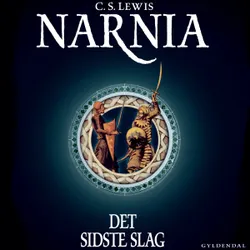
Narnia 7 - Det sidste slag
C. S. Lewis
audiobookbook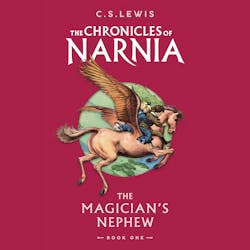
The Magician’s Nephew
C. S. Lewis
audiobook
50 Timeless Masterpieces (Volume 1) : Essential Classics for a Rich Literary Journey
Homer, Sun Tzu, Plato, Dante, Shakespeare, Miguel de Cervantes, John Milton, Daniel Defoe, Johann Wolfgang von Goethe, Jane Austen, Nikolai Gogol, Emily Brontë, Mary Shelley, Alexandre Dumas, Fyodor Dostoevsky, Charles Dickens, Victor Hugo, Nathaniel Hawthorne, Gustave Flaubert, Leo Tolstoy, Henrik Ibsen, Herman Melville, Mark Twain, Robert Louis Stevenson, Arthur Conan Doyle, Raymond Chandler, H. G. Wells, Joseph Conrad, Rudyard Kipling, Louisa May Alcott, L. Frank Baum, L. M. Montgomery, T. S. Eliot, Franz Kafka, James Joyce, Virginia Woolf, C. S. Lewis, Ernest Hemingway, Walt Whitman, Jack Kerouac, John Steinbeck, William Faulkner, Kate Chopin, Zora Neale Hurston, Margaret Mitchell, Sylvia Plath, Thomas Mann, Albert Camus, George Orwell
book
Library of Masterpieces - 100 Books to Read in a Lifetime
illiam Shakespeare, Fyodor Dostoevsky, Louisa May Alcott, Miguel de Cervantes, John Milton, Jane Austen, Charlotte Brontë, Emily Brontë, Anne Brontë, William Makepeace Thackeray, George Eliot, Charles Dickens, Thomas Hardy, Jonathan Swift, Daniel Defoe, Joseph Conrad, Robert Louis Stevenson, Mary Shelley, Bram Stoker, Arthur Conan Doyle, Wilkie Collins, Oscar Wilde, T. S. Eliot, D. H. Lawrence, James Joyce, Virginia Woolf, E. M. Forster, Evelyn Waugh, Aldous Huxley, George Orwell, H. G. Wells, Lewis Carroll, Frances Hodgson Burnett, Kenneth Grahame, C. S. Lewis, Malcolm Lowry, Ford Madox Ford, Mark Twain, Jack London, Herman Melville, Ernest Hemingway, Jack Kerouac, Nathaniel Hawthorne, Edith Wharton, Walt Whitman, Kate Chopin, Harriet Beecher Stowe, Neale Hurston, Richard Wright, Raymond Chandler, Dashiell Hammett, F. Scott Fitzgerald, John Steinbeck, William Faulkner, Margaret Mitchell, Sylvia Plath, Carson McCullers, L. Frank Baum, L. M. Montgomery, Leo Tolstoy, Ivan Turgenev, Nikolai Gogol, Johann Wolfgang von Goethe, Friedrich Nietzsche, Thomas Mann, Franz Kafka, Erich Maria Remarque, Albert Camus, Marcel Proust, Jules Verne, Victor Hugo, Gustave Flaubert, Stendhal, Alexandre Dumas, Henrik Ibsen, Rudyard Kipling, Homer, Sophocles, Virgil, Laozi, Sun Tzu, Plato, Marcus Aurelius, Dante Alighieri, Niccolò Machiavelli
book
